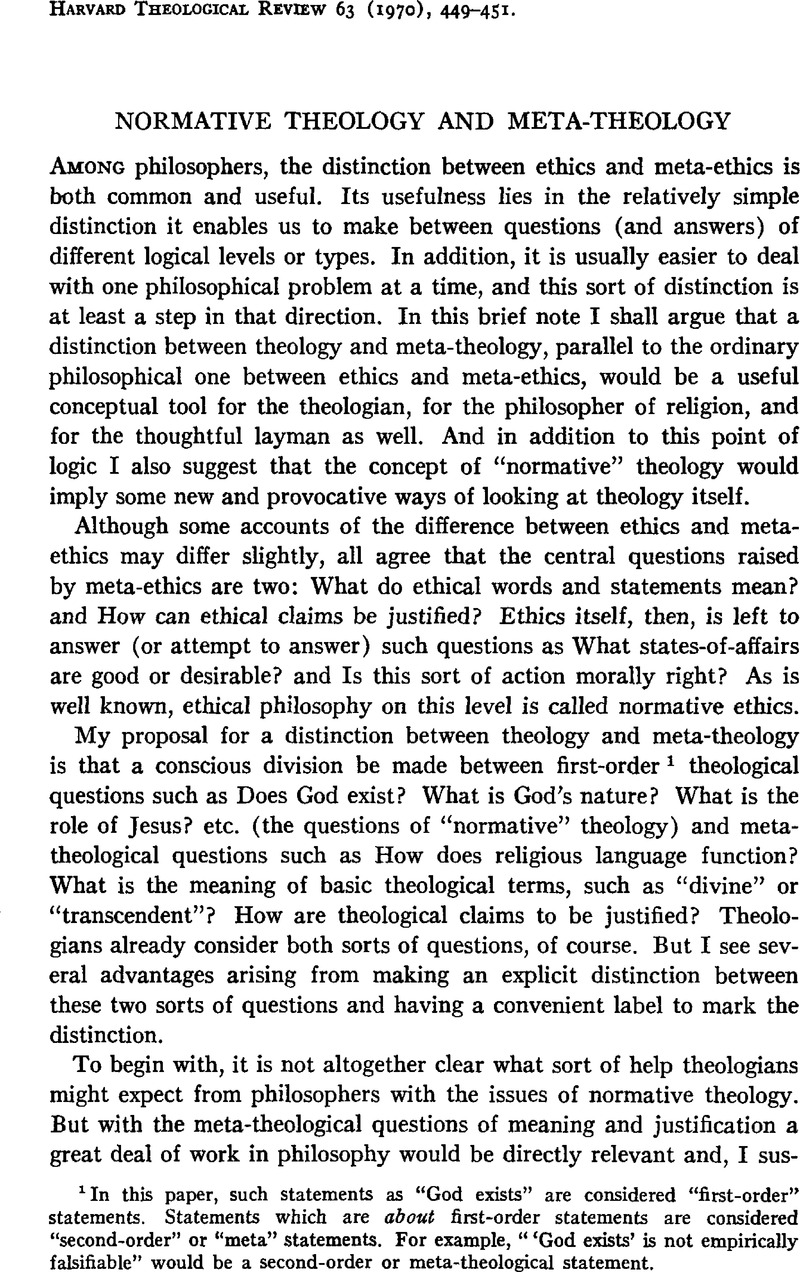Published online by Cambridge University Press: 10 June 2011

1 In this paper, such statements as “God exists” are considered “first-order” statements. Statements which are about first-order statements are considered “second-order” or “meta” statements. For example, “‘God exists’ is not empirically falsifiable” would be a second-order or meta-theological statement.
2 For accounts of this approach to meta-ethics see Baier, Kurt, Good Reasons, Philosophical Studies 4 (1953), 1–15Google Scholar, and Toulmin, Stephen, An Examination of the Place of Reason in Ethics (Cambridge: Cambridge University Press, 1964)Google Scholar, especially Chapter 14, Reason and Faith, 202–21.
3 The linking of faith with morals (i.e., with normative statements) in the dogma of papal infallibility suggests that there may be a genuine insight in the suggestion that theological statements might be construed as normative.